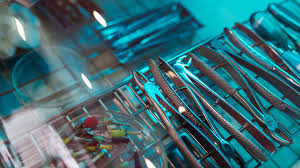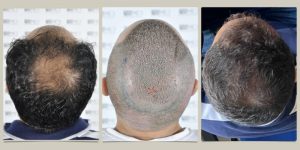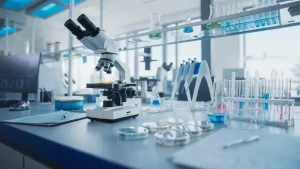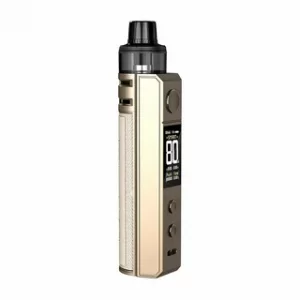Precision Medical Machining: Revolutionizing Healthcare Through Advanced Manufacturing

Precision medical machining stands at the forefront of technological innovation in healthcare, playing a pivotal role in the creation of high-quality components that drive medical devices’ accuracy, reliability, and performance. This specialized form of machining involves intricate processes and cutting-edge techniques tailored to meet the stringent demands of the medical industry. In this article, we delve into the world of precision medical machining exploring its significance, advanced techniques, and transformative impact on healthcare.
Understanding Precision Medical Machining
Precision medical machining refers to the manufacturing process of creating intricate components and parts for medical devices with exceptionally tight tolerances and precise specifications. These components are crucial for various medical applications, including surgical instruments, implantable devices, diagnostic equipment, and more. Precision machining in the medical field requires expertise, state-of-the-art equipment, and adherence to strict quality standards to ensure optimal performance and patient safety.
Advanced Techniques in Precision Medical Machining
- Computer Numerical Control (CNC) Machining: CNC machining is a fundamental technique in precision medical machining. It involves the use of computer-controlled machines to remove material from a workpiece with high precision and accuracy. CNC machines can create complex geometries and intricate features required for medical components.
- Micro-Machining: Micro-machining techniques are employed to produce extremely small components with micron-level accuracy. This includes processes such as micro-milling, laser machining, and EDM (Electrical Discharge Machining), which are essential for manufacturing miniature parts used in microsurgical instruments and microfluidic devices.
- Additive Manufacturing (3D Printing): Additive manufacturing, particularly in the form of 3D printing, has gained prominence in precision medical machining. It allows for the rapid prototyping and production of complex medical parts, including patient-specific implants and customized surgical tools. Additive manufacturing offers flexibility, customization, and cost-effectiveness in producing intricate geometries.
- Precision Injection Molding: Injection molding is utilized for mass-producing plastic and polymer components with precise dimensions and tolerances. It is commonly used in manufacturing medical device housings, connectors, and disposable components.
- Grinding and Finishing Processes: Precision grinding and finishing processes are employed to achieve exceptional surface quality, smoothness, and dimensional accuracy in medical components. These processes are critical for ensuring the functionality and longevity of medical devices.
Applications of Precision Medical Machining
The applications of precision medical machining are diverse and encompass various areas within the healthcare industry:
- Surgical Instruments: Precision machining is integral to the production of surgical instruments such as scalpels, forceps, retractors, and endoscopic tools. These instruments require precise dimensions, sharp edges, and ergonomic designs to facilitate minimally invasive procedures and ensure surgical precision.
- Implantable Devices: Precision machining plays a crucial role in manufacturing implantable medical devices, including pacemakers, joint implants, dental prosthetics, and orthopedic implants. These components must exhibit biocompatibility, corrosion resistance, and precise dimensions to function effectively within the human body.
- Diagnostic Equipment: Precision-machined components are essential in diagnostic equipment such as MRI machines, CT scanners, X-ray systems, and ultrasound devices. These components contribute to the accuracy, reliability, and resolution of diagnostic imaging, aiding healthcare professionals in diagnosing medical conditions.
- Laboratory Instruments: Precision machining is utilized in the production of laboratory instruments and equipment used in medical testing, research, and analysis. This includes components for centrifuges, spectrophotometers, chromatography systems, and PCR machines, where accuracy and repeatability are paramount.
Benefits of Precision Medical Machining
The adoption of precision medical machining brings several benefits to the healthcare industry:
- High Accuracy and Quality: Precision machining ensures the production of components with tight tolerances, high accuracy, and exceptional quality, leading to reliable and consistent performance in medical devices.
- Customization and Complexity: Advanced machining techniques allow for the customization and creation of complex geometries, intricate features, and patient-specific designs, meeting the diverse needs of healthcare applications.
- Improved Patient Outcomes: Precision-machined components contribute to improved patient outcomes by enhancing the functionality, reliability, and safety of medical devices used in diagnosis, treatment, and patient care.
- Efficiency and Cost-Effectiveness: Precision machining enables efficient production processes, reduced material wastage, and cost-effective manufacturing of medical components, supporting healthcare providers in delivering quality care at lower costs.
Challenges and Future Trends
While precision medical machining offers significant advantages, challenges and future trends shape its evolution:
- Material Innovations: Advancements in materials science, including biocompatible materials, nanomaterials, and composites, will drive innovations in precision machining for medical applications, enhancing performance and durability.
- Automation and Robotics: The integration of automation, robotics, and AI technologies in precision machining will improve productivity, quality control, and process optimization, reducing manual intervention and human error.
- Regulatory Compliance: Adhering to stringent regulatory standards and quality management systems, such as ISO 13485, remains critical for precision medical machining to ensure product safety, efficacy, and compliance with industry regulations.
- Digital Integration: Digital technologies, such as digital twins, IoT connectivity, and data analytics, will be integrated into precision machining processes, enabling real-time monitoring, predictive maintenance, and performance optimization of machining equipment.
Conclusion
Precision medical machining is a cornerstone of modern healthcare, driving innovation, quality, and reliability in medical device manufacturing. With advanced techniques, materials, and digital integration, precision machining continues to revolutionize healthcare technologies, improve patient care, and pave the way for future advancements in medical science and engineering. As the healthcare industry evolves, precision medical machining will remain at the forefront of transformative technologies, shaping the future of healthcare delivery worldwide.







